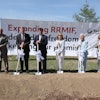Manufacturing Business Technology recently talked to Melissa Cook, senior director of Microsoft Dynamics Global Manufacturing. Cook discusses ERP trends and what companies should consider when selecting new systems.
Manufacturing Business Technology: ERP software selection can be a daunting task for manufacturing companies. What are some of the biggest obstacles that companies are dealing with when it comes to ERP software selection?
Melissa Cook: I think that when manufacturers are out looking for a new ERP system, the assumption is that they’re not happy with the one they have. Historically you might have seen that it was more of an expense issue for companies — perhaps maybe they were looking to save some money and modernize the architecture — but we’re increasingly seeing that companies with legacy architecture cannot adapt to the pace of change in manufacturing. The pace of change is causing companies to be out there looking for new ERP systems — not necessarily that they’re going to replace everything that they have, but they need something to address very quick changing things like a new opportunity in an emerging market.
In terms of software selection, I think it’s critical that companies are very clear on the pain points that they’re trying to solve—and then make sure to factor that into the solution set. Companies need to find something that not only solves the particular pain points that they’re aware of today, but is actually designed for change. It’s not just important to solve the problem today, but you need architecture that is actually going to be flexible to solve unknown problems of the future.
MBT: What are some of the latest features and functionality trends hitting ERP software right now?
Cook: One of the things that I don’t think people connect with manufacturing is the movement towards social. I think when you hear about technologies in the social space, most people don’t think of manufacturing industries. They think of retail or distribution. We’re excited about, what I would like to call The Social Manufacturer. Social has such a wonderful role to play in innovation so manufacturers can stay close to their customers, not to just service them better, but in fact to collect new facts and new ideas from the consumers themselves. That information can then be fed back into the engineering side of a manufacturing organization. We don’t see people thinking of social manufacturers, but we think it’s critical. We’ve talked for so many years about connecting the supply chain on the backend — to me the exciting part of social is connecting the demand chain to manufacturing.
MBT: How will this social aspect of ERP software really help companies?
Cook: I think people struggle with how that fits within a manufacturing world. I think they see it in customer support, sales or sales functions, but the way that we see it for manufacturers is the ability to capture information and to innovate. From a trend prospective, we hear the most from our manufacturing customers about the need to innovate to just stay on top in this very competitive, global environment. You have got to have a great new product, design and innovation process to stay competitive. The social aspect gives manufacturers the ability to stay close to the consumers, not to just support them better, but to actually see the need for new innovative products early in the cycle. Manufacturing is really about matching supply with demand.
MBT: How does Microsoft Dynamics software solutions help companies gain better business intelligence? And how does this help to improve productivity?
Cook: I think that if you talk to the normal manufacturing company coming through the doors at Microsoft, they usually want to know how to innovate and how to optimize (and with optimize they usually mean becoming more productive, reducing costs, increasing efficiency and brainstorming in the area of process improvement).
So it’s about innovation and optimizing. We think we have a great suite of products on both the ERP and CRM side, along with social platforms and of course the Microsoft stack of products. We think we can bring all that to bear on the combination of the need to innovate and the need to optimize, both of which are critical for manufacturing companies.
MBT: How flexible are ERP systems and what is Microsoft doing to foster ease-of-use for companies?
Cook: We hear people come through the door and not being satisfied with the legacy systems that they have in manufacturing. The reputation for legacy systems is that they’re expensive, slow to implement, can’t be changed very quickly, hard to use, and inflexible. From a Microsoft perspective, we have been coming to market with an exact opposite approach. We’ve got the Dynamics solution which has a lower total cost of ownership, it’s pretty quick to implement, it’s easy to use, it uses a standard Microsoft stack that users are already familiar with and it’s flexible. We call that the multi-everything. It can handle multi-load manufacturing solutions so you can do discrete, whole process or Lean methods. It supports multi-site and multi-language use. For customers, it allows them to change their method of manufacturing or deployment strategy into various countries. The system is built to enable the unforeseen choices manufacturers are going to make in the future. We think it’s a critical factor for companies to have the ability to change.
MBT: What are the questions manufacturers should be asking of their software? What should companies make sure their software is doing for them?
Cook: We’ve probably harped too much on change, but there’s some interesting statistics about the need to innovate and be flexible. One of the statistics says people don’t think of manufacturing as being the innovative industry when, in fact, something like 90 percent of the patents come out of the manufacturing industries. So it is already a fast-changing industry. Even though people don’t perceive it as being a fast-paced industry, but it is by nature that it has to reinvent products in order to stay competitive all of the time.
Secondarily, with the economy we’ve all been on a rough ride the last five to six years and manufacturers have probably felt the brunt of that because they can’t just cost-cut their way out of an economic downturn, because the manufacturing industry has a very high percentage of fixed costs — plants for example, you just can’t close them and open them at will. The ability for manufacturers to innovate their way out of changes is critical. The question they should be asking their software provider when they’re trying to select a new ERP is “How does your product adapt to change?” Not just the change they know of today, but how is it built to be able to change on an ongoing basis — how it is designed to change. To me, that’s just really fundamental. That’s why people go out shopping for new ERP the vast majority of the time — because what they’ve got can’t change to meet their current needs.























